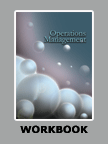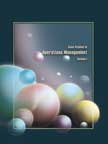Gujarat Ambuja: Redefining Operational Efficiency
|
|
ICMR HOME | Case Studies Collection
Case Details:
Case Code : OPER009
Case Length : 12 Pages
Period : 1993 - 2002
Organization : Gujarat Ambuja (GACL)
Pub Date : 2005
Teaching Note : Available
Countries : India
Industry : Cement
To download Gujarat Ambuja: Redefining Operational Efficiency case study
(Case Code: OPER009) click on the button below, and select the case from the list of available cases:

Price:
For delivery in electronic format: Rs. 300;
For delivery through courier (within India): Rs. 300 +Shipping & Handling Charges extra
» Operations Case Studies
» Case Studies Collection
» ICMR HOME
» View Detailed Pricing Info
» How To Order This Case
» Business Case Studies
» Case Studies by Area
» Case Studies by Industry
» Case Studies by Company 
Please note:
This case study was compiled from published sources, and is intended to be used as a basis for class discussion. It is not intended to illustrate either effective or ineffective handling of a management situation. Nor is it a primary information source.
Chat with us

Please leave your feedback

|
|




<< Previous
Excerpts
Working Hard towards Operational Excellence
According to analysts, GACL's strategic farsightedness was evident in its decision to locate its plants in backward areas, so as to take advantage of substantial sales tax and income tax incentives. GACL's units in the states of Gujarat, HP and Punjab also received sales tax incentives. This was possible as all new investments in cement after 1986 enjoyed a sales tax benefit of up to 90% of the value of fixed assets for a period of 14 years...
Enhancing Productivity
|
GACL worked hard to reduce mining expenses. Cement companies normally operate
their own limestone mines. Mines were not only extremely destructive
environmentally, they were also expensive to operate. The explosives used for
mining were on the negative list of imports and substantial costs were involved
in implementing safety measures. In 1997, GACL sent its engineers to Australia
to study the extraction of metals. On their return, GACL implemented new
technologies that could access limestone in smaller areas where blasting was not
possible. To reduce the noise and vibration that occurred during the
conventional drilling, blasting and crushing process, the company introduced an
Australian device called Surface Miner...
|

|
Cutting Costs
- Power
Power accounted for a large part of GACL's cost of production. GACL realized
that a captive power plant would increase savings substantially as power
sourced from the power grids was both unreliable and costly. So it set up
fuel based captive power plants in Gujarat (40 MW) and Himachal Pradesh (12
MW) in 1998. GACL's captive power generation cost was only Rs 1.30 per
kilowatt (excluding interest and depreciation), compared to Rs 4.50 per
kilowatt for power supplied by the Electricity Boards.
|
|
Soon, the
company was not only getting around 60.3% of its total power requirement
from these plants, it was also selling the excess power it generated to
the local state governments. B S Dulani, Vice President, Operations, at
the Gujambuja plant said, "Small measures like modifications in higher
capacity motors for fans, coolers etc. according to specific
requirements (shifting from AC to DC drive, which allows regulation of
current) wherever possible, and many other simple steps helped reduce GACL's power consumption from 120 units/tonne of cement in 1987 to 88-90
units per tonne in 1995 against an industry average of 121 units per
tonne."... |
The Future
The continual capacity build-up in the Indian cement industry led to an excess capacity situation by the beginning of the 21st century. During the same period, growth in the cement industry declined from 21% (April-September 1999) to 11% (October 1999-March 2000) because of drought in many parts of the country. Prices dropped because people feared that construction activities would decline due to the drought...
Exhibits
Exhibit I: GACL - State Wise Plant Capacity
Exhibit II: GACL - Profit & Loss Statements
Exhibit III: Various Awards Won by GACL
|
|










